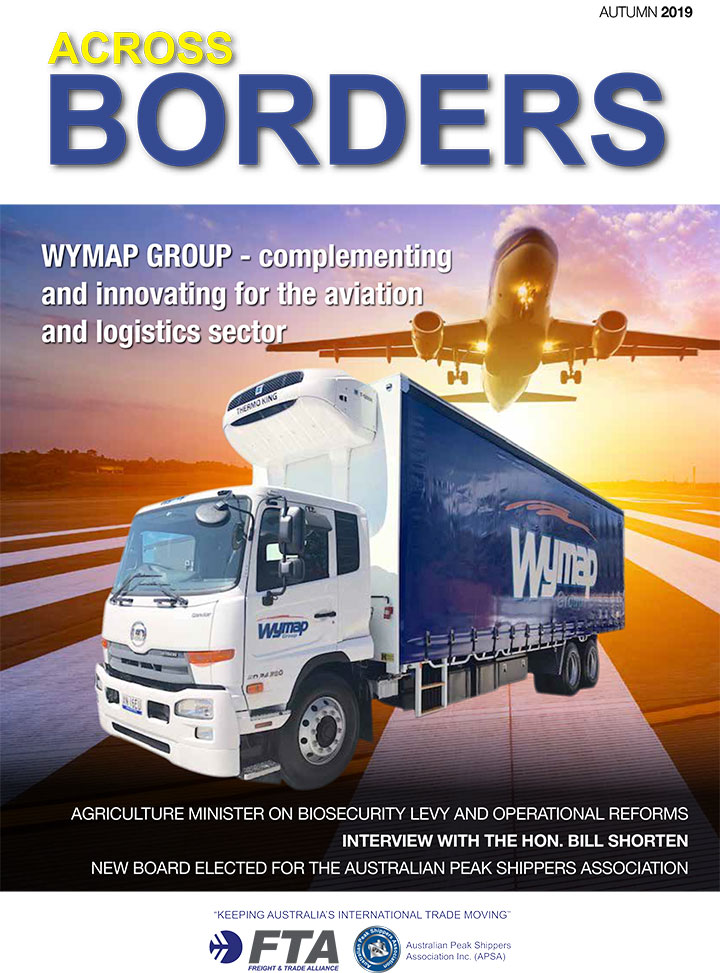Businesses in Australia are being offered Australian Trusted Trader (ATT) status if they comply with a set of regulations. This status provides trading companies with a range of privileges and benefits that any trading company would be advantaged with.
Major benefits include increased administrative efficiency through severely reducing bureaucracy, especially with regards to customs and the handling of goods at the border, as well as improving cash flow as a result of the ability to defer duty to a specified date to be singularly processed. In addition, businesses receive recognition as a trusted trader both at home and abroad with the opportunity to apply for a business travel card (for Asia-Pacific participating nations) and fast-tracked temporary skills shortage (TSS) visas which would normally take 12 months to process.
The status also entitles you to personalised logistics support provided by border force, which can significantly improve the continuity and consistency of service at customs. The support even includes a data collection service which tracks your goods and can be used not only to improve logistics but also detect and reduce fraudulent transactions. There really are no apparent reasons not to apply for this status.

To do so
While no single mitigation strategy is guaranteed to prevent
Organisations can meet different compliance tiers, called maturity levels, ranging from 1 to 4. The ACSC stipulates that most companies should aim for the 3rd
A security assessment is three-fold: identification of a hazard (such as a third party); establishment of the risk (an example being the privileges the third party has); and determination of a mitigation strategy (for instance: third parties should meet the same standard of security as your own company and be restricted in their access to your network).
Identification as an initial preliminary to security should not be underestimated in value.
It is recommended that before implementing any of the Essential 8 mitigation strategies, organisations should perform the following activities:
- Identify which systems require protection (i.e. which systems store, process, or communicate sensitive information, or information with a high availability requirement);
- Identify which adversaries are most likely to target their systems (e.g. nation-states,
cyber criminals , or malicious insiders); and - Identify what level of protection is required (i.e. selecting mitigation strategies to implement based on the risks to business activities from specific adversaries).
In particular, well-established companies should keep in mind the risks associated with legacy systems which they have brought onto new, wider networks. These systems may not have the necessary security features required to deal with threats in the modern technology age, especially if they were designed prior to a globally accessible internet. In addition, companies bringing physical machines online to streamline processing and provide better data collection should also be aware of the risk of doing so and should consider isolating these on a separate network which can be quarantined in the event of a security breach.
In addition, third-party providers are often the limiting factor for logistics company security. All companies, including
Furthermore, any third parties should meet the same security requirements as your own organisation. Company data is only ever protected as much as the path of least resistance: you can have a moat around your castle, but if your food suppliers use bridges the moat makes no difference under an assault.
Once identification has been conducted, the Essential 8 tackle three key areas of data security: preventing malware delivery and execution, limiting the extent of cyber security incidents, and recovering data and system availability. The Essential 8 are conveyed in the below schematic.
Implementation of the Essential 8 will ensure compliance with the requirements of the Australian Trusted Trader application form questionnaire, but it is certainly a sensible way to conduct business security in the 21st century regardless of any application process.
Cyber Citadel can provide
Critically, assessment never stands still. Third parties change, employees change, police checks are irregular, and the security requirements themselves are constantly – often rapidly – evolving. This means that all companies should keep records, both in terms of a digital footprint (covering activity, access, sharing, data creation and loss) and in terms of changing business situations such as employees or policy.
This may all seem overwhelming, but the Essential 8 are really just that – essential. And implementing them can provide you with access to Australian Trusted Trader membership. You don’t need to do it alone: security firms such as Cyber Citadel are here to help you and your company every step of the way if need be. From updates on existing systems to full security rebuilds, as well as
Published in Across Borders magazine – Autumn 2019
Download article pages Read full magazine online



